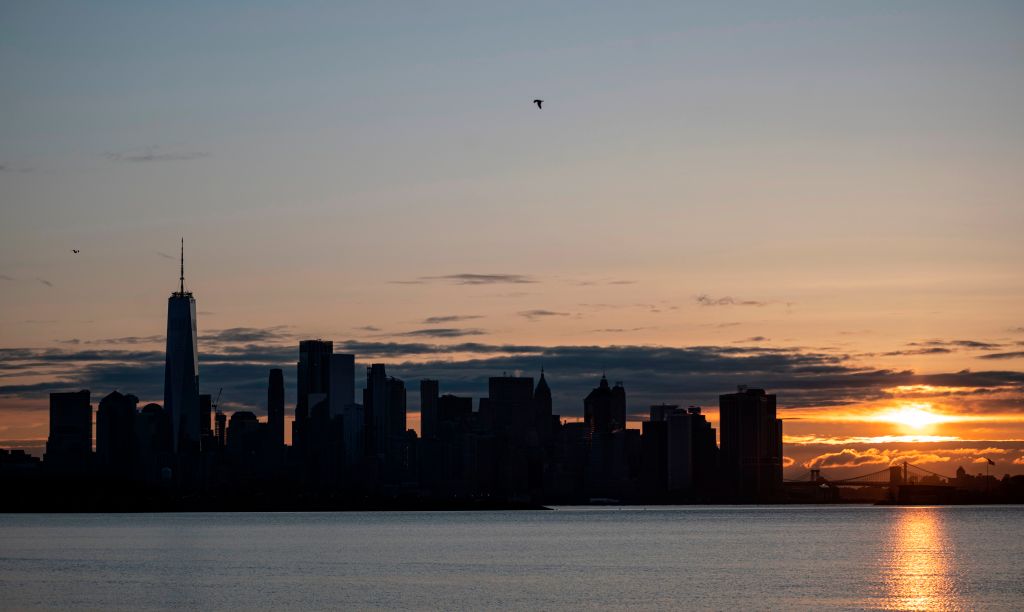Only 35 percent of NYC's coronavirus cases gave info about close contacts in tracing program's initial stage


A free daily email with the biggest news stories of the day – and the best features from TheWeek.com
You are now subscribed
Your newsletter sign-up was successful
New York City's new coronavirus contact tracing program has gotten off to a rough start, The New York Times reports, though experts remain optimistic it will improve over time.
The ambitious program, which employs 3,000 contact tracers, has yet to yield satisfying results as New York heads toward a new phase of reopening that includes outdoor dining, in-store shopping, and the resumption of office work. All told, the nation's largest city has come a long way since it was battered by the virus in the early days of the pandemic, but fresh challenges likely await, which is where the contact tracers come in.
In the program's first two weeks only 35 percent of New York's 5,347 residents who have tested or were presumed positive for COVID-19 gave any information about close contacts to tracers, which isn't great considering Perry Halkitis, the dean of Rutgers University's School of Public Health, said "you should be in touch with 75 percent" of each patient's contacts "within a day."
The Week
Escape your echo chamber. Get the facts behind the news, plus analysis from multiple perspectives.

Sign up for The Week's Free Newsletters
From our morning news briefing to a weekly Good News Newsletter, get the best of The Week delivered directly to your inbox.
From our morning news briefing to a weekly Good News Newsletter, get the best of The Week delivered directly to your inbox.
In addition to the low response rate, the city is also refraining from using technology to track contacts, and privacy concerns have prevented officials from mandating extensive programs seen in other countries like China, South Korea, and Germany.
But Halkitis and others like Dr. Crystal Watson, a contact tracing expert at Johns Hopkins Bloomberg School of Public Health, emphasized that an effort on this scale will take some time before rounding into shape. "I do think it is a beginning and it will build on itself," Watson said. Read more at The New York Times.
A free daily email with the biggest news stories of the day – and the best features from TheWeek.com
Tim is a staff writer at The Week and has contributed to Bedford and Bowery and The New York Transatlantic. He is a graduate of Occidental College and NYU's journalism school. Tim enjoys writing about baseball, Europe, and extinct megafauna. He lives in New York City.
-
 Local elections 2026: where are they and who is expected to win?
Local elections 2026: where are they and who is expected to win?The Explainer Labour is braced for heavy losses and U-turn on postponing some council elections hasn’t helped the party’s prospects
-
 6 of the world’s most accessible destinations
6 of the world’s most accessible destinationsThe Week Recommends Experience all of Berlin, Singapore and Sydney
-
 How the FCC’s ‘equal time’ rule works
How the FCC’s ‘equal time’ rule worksIn the Spotlight The law is at the heart of the Colbert-CBS conflict
-
 Nobody seems surprised Wagner's Prigozhin died under suspicious circumstances
Nobody seems surprised Wagner's Prigozhin died under suspicious circumstancesSpeed Read
-
 Western mountain climbers allegedly left Pakistani porter to die on K2
Western mountain climbers allegedly left Pakistani porter to die on K2Speed Read
-
 'Circular saw blades' divide controversial Rio Grande buoys installed by Texas governor
'Circular saw blades' divide controversial Rio Grande buoys installed by Texas governorSpeed Read
-
 Los Angeles city workers stage 1-day walkout over labor conditions
Los Angeles city workers stage 1-day walkout over labor conditionsSpeed Read
-
 Mega Millions jackpot climbs to an estimated $1.55 billion
Mega Millions jackpot climbs to an estimated $1.55 billionSpeed Read
-
 Bangladesh dealing with worst dengue fever outbreak on record
Bangladesh dealing with worst dengue fever outbreak on recordSpeed Read
-
 Glacial outburst flooding in Juneau destroys homes
Glacial outburst flooding in Juneau destroys homesSpeed Read
-
 Scotland seeking 'monster hunters' to search for fabled Loch Ness creature
Scotland seeking 'monster hunters' to search for fabled Loch Ness creatureSpeed Read
